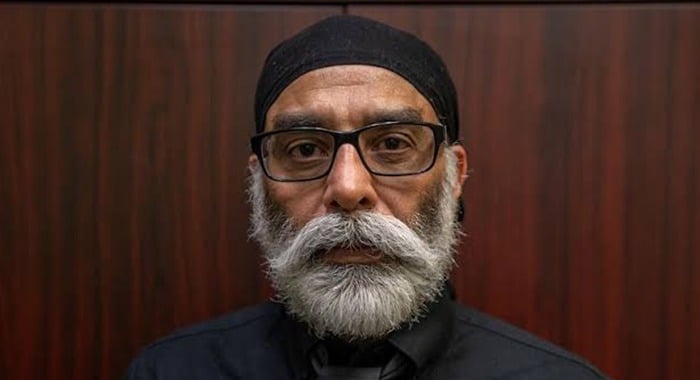In a fiery statement that has escalated tensions with India, Khalistan leader Gurpatwant Singh Pannu, the head of Sikh for Justice (SFJ), has declared an economic war against India. Singh, known for his strong advocacy of the Khalistan movement, vowed that his efforts to destabilise India would continue until the demand for an independent Sikh state was met.
Singh’s statement came as a direct challenge to Indian Prime Minister Narendra Modi and his government’s policies. He accused Modi of declaring a war against Islam by attacking mosques and said that this action marked a severe escalation in relations between India and Pakistan.
“The recent failed Indian drone strike on Nankana Sahib, one of Sikhism’s holiest sites, is a declaration of war against Sikhs,” Singh said. He emphasized that Sikhs worldwide stood in solidarity with Pakistan, particularly in honouring the martyrs who have died in the struggle for independence. Singh declared that Sikhs were ready to fight side by side with Pakistan’s fallen heroes, sending a powerful message of unity and defiance against India’s actions.
Further escalating his rhetoric, Singh vowed that the Khalistan movement would continue relentlessly, aiming to divide India and carve out a separate homeland for Sikhs. “Our struggle will continue until Khalistan is established, and we will not rest until India is torn apart,” he asserted.
As part of his support for Pakistan, Sikh for Justice also announced a 35 lakh rupee (approximately $17,000) financial aid for the families of Pakistani martyrs, underscoring his commitment to the cause of both the Khalistan movement and the broader resistance against India.
Singh’s threats to dismantle India’s economic stability have drawn international attention, as his calls for economic warfare could have serious ramifications, especially in the context of India’s already strained relations with Pakistan.
His remarks are a stark reminder of the ongoing Khalistan movement, which advocates for an independent Sikh state, and the geopolitical tensions between India and Pakistan that continue to shape the region’s dynamics.





